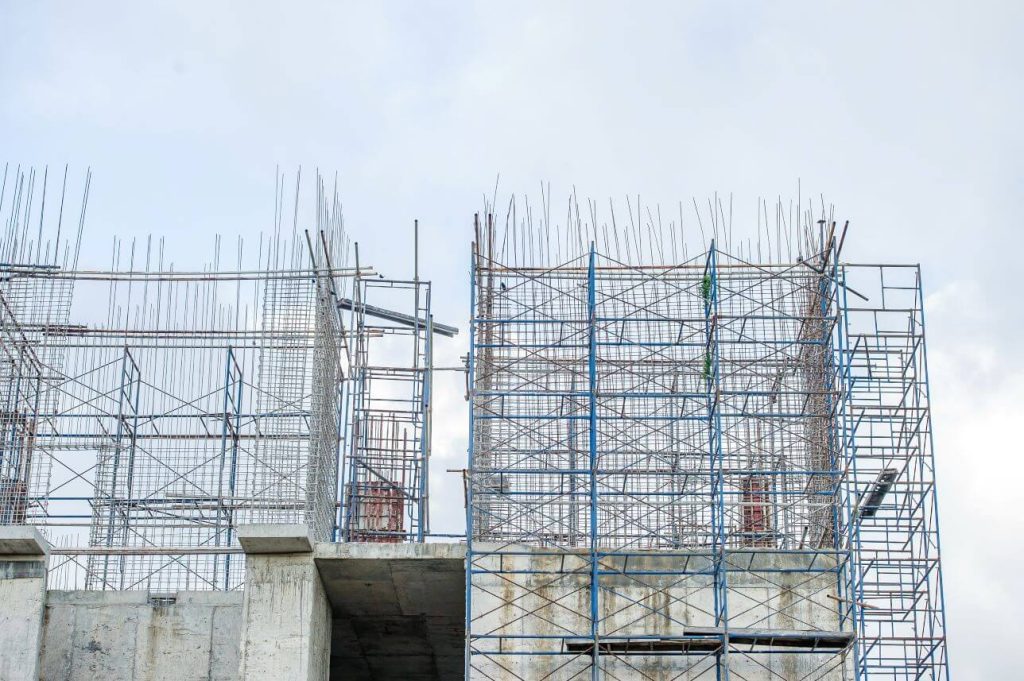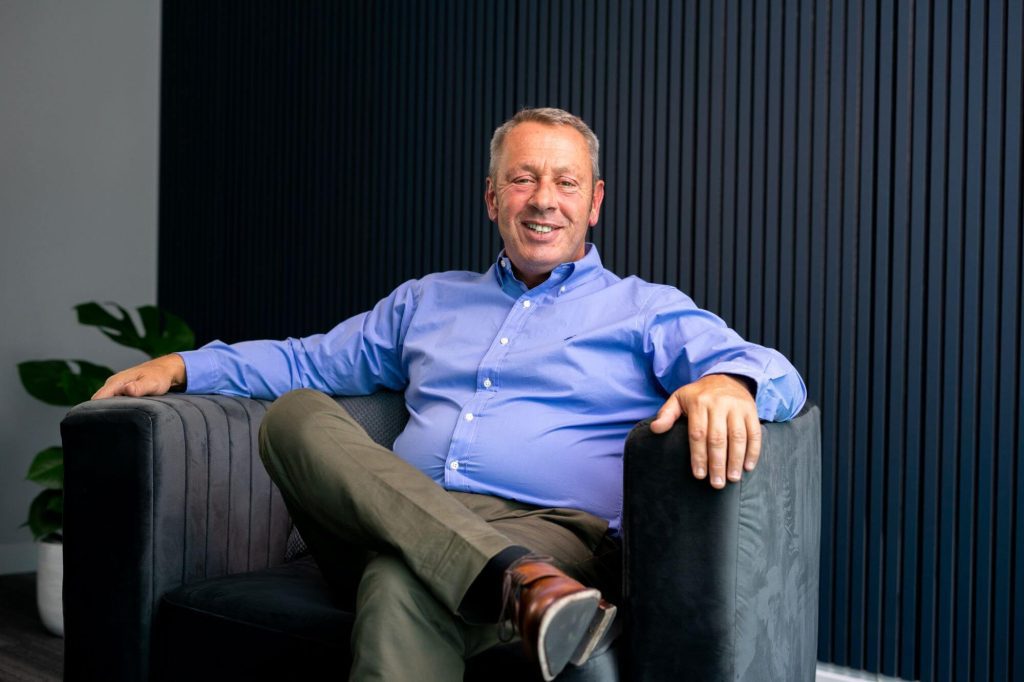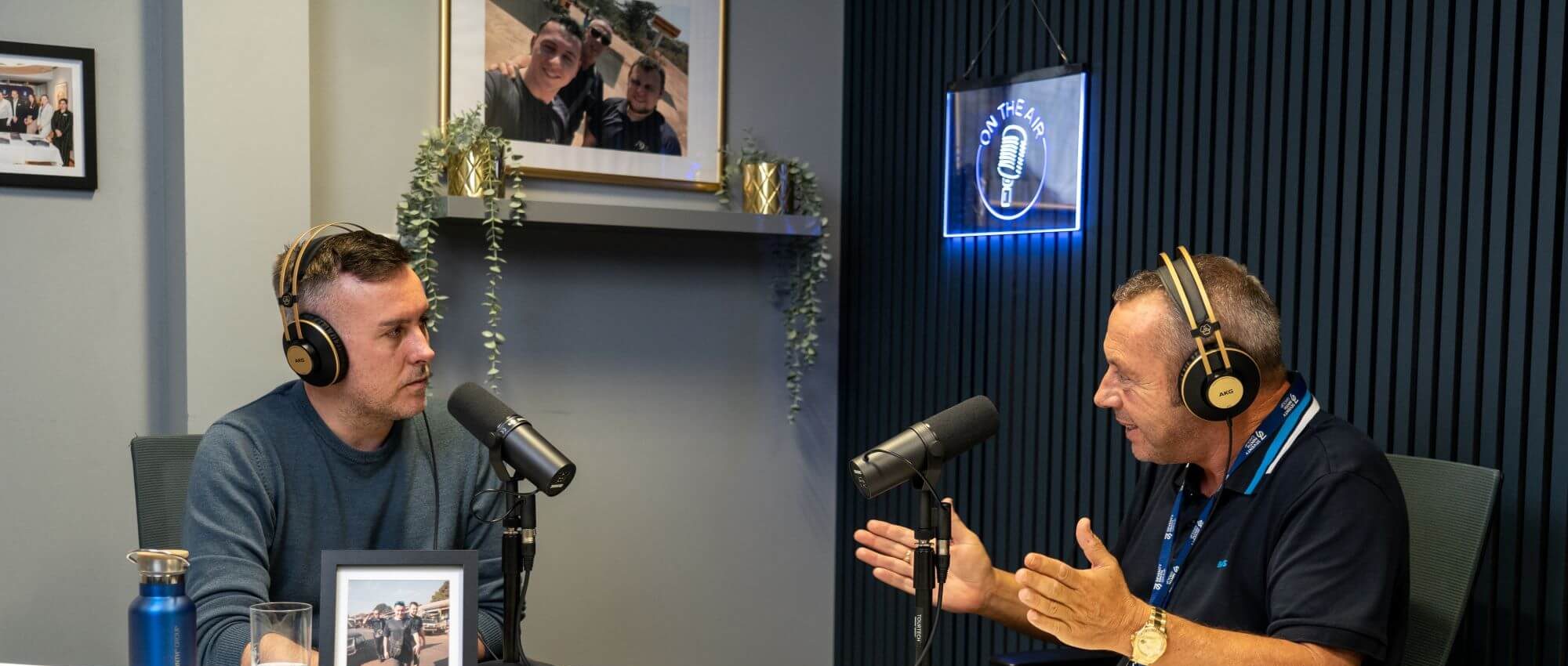I started my venture into the property sector in 1991 and have seen the market change drastically since then. From buying my first ever buy-to-let property in Anfield, Liverpool, to helping establish the Merseyside Development Group, acquiring and developing thousands of properties across the North West of England, I have worked in every property subsector and have developed a breadth of knowledge over the years.
This gained knowledge has helped inform the decisions I make today and is a large part of why the Seventy Ninth Group is so successful. I’ve learned a lot over the years and am still learning daily. I’m constantly reminded that we all make mistakes, but what you learn from them makes the difference. My goal is to make at least two good decisions a day. In decision-making, being willing to put everything on the line for what you believe in is important. At Seventy Ninth Group, we focus on identifying what works and what doesn’t, partly through knowledge and partly through instinct and our intrinsic beliefs. It shows in how we’ve experienced significant growth in a short time.
In this piece, I will talk about some of the issues in the property market today and explain how I’ve managed to navigate the sector and successfully adapt to develop a model that thrives in uncertain times.

The instability of the off-plan sector
My biggest concern in property is within the off-plan sector. I’ve invested in off-plan property over the years, but this sector is no longer as simple to invest in and make a good return on as it once was. It’s complex nowadays, and it will only get more difficult as prices in the residential space are expected to crash. Rental yield will increase because supply and demand couldn’t be further apart, but the property space will take a substantial hit.
The off-plan sector worked at one point, but that is no longer the case as there’s simply no stability in it. In just the past five years, our country has gone through a lot. There was Brexit, the COVID-19 pandemic, the war between Russia and Ukraine, several Prime Ministers and vast changes to the budget, including Liz Truss’ widely criticised mini-budget that sent mortgage rates soaring. And now, we’re going through one of the worst cost of living crises witnessed in decades, with inflation hitting record highs. A UK recession could still be on the cards. Although the likelihood has dropped, it has not dissipated entirely.[i]
The combination of these events has led to huge instability in the UK economy, particularly the off-plan housing market. The Financial Times reported last year that UK property company insolvencies had soared, with 81 companies falling into insolvency in the first three months of the year.[ii] One of the biggest issues being faced is the supply chain. I deal in iron, steel, and copper, so have seen first-hand many of the issues within the supply chain. Prices have soared for metals and other materials used in construction since the start of 2021, following the impact of the pandemic and the UK leaving the EU, leading to shortages and issues importing materials. Effectively, this means the properties that investors are being offered off-plan can’t be built or can’t be built for the price that was agreed upon two years ago. But they aren’t communicating this honestly to investors.
Off-plan buildings are being mothballed continuously, which is particularly bad for the buyer as they’ve already paid a deposit. The developer will then tell the buyer that the price has increased and they require more money. The investor has a limited choice – they can either put in more or lose the money they’ve already invested.
This is why off-plan is such a minefield. There are developers offering off-plan properties and essentially selling a dream that will remain unfulfilled. A lot of them know these properties can’t be built, or if they are, it will cost a lot more than the initial investment they are asking for, and the investor won’t get the returns they promise.

Many of these developers aren’t bothered whether the properties get built because they’re receiving the profit upfront. Unfortunately, this is an attitude numerous people in the development space have nowadays. As long as they get paid, they’re not concerned with the outcome for the investor.
I read a story last year in the Echo, a local newspaper, about an investor losing £700,000 buying off-plan apartments in Liverpool from a company that collapsed and went bust before the building was complete.[iii] Investors were told the site would house 400 new apartments close to the city centre, and they could expect an assured 8% annual return on their money. More than 100 people subsequently made an off-plan investment in the development. But after the firm behind the development fell into administration and later went bust, they were left with no apartments and no money was returned.
The most concerning part is that many people in Singapore, Kuala Lumpur, and the Middle East, have been asking me about these off-plan property schemes. They’re getting misled into this UK model. A client in Singapore recently told us about an off-plan apartment he’d been offered for £200,000. I explained my concerns to him. Giving your money to someone you don’t know and can’t trust is nonsensical. The likelihood of the property even being built is very low.
Adaptability is key: What works on a Monday no longer works on a Friday
Buildings that rely heavily on steel and aluminium will not be built or cannot be built for the price that was previously agreed upon a few years back. The issue with the market is the inability to adapt. The property market is ever-changing, and you must keep up and continue thinking on your feet and adapting. Like I always say, what works on a Monday, no longer works on a Friday. You must be adaptable in these uncertain times, yet many developers aren’t being flexible and keeping up with the changes.
Fortunately for us, we’ve managed to adapt as times change. It’s much easier to make a profit when things are going up, but knowing what to do when things are going down is what will set you apart. We’ve adapted over the years from everything I’ve learned working in this sector. In fact, we specialise in acquiring, managing, and developing lucrative assets during times of economic turmoil and uncertainty. This type of strategy minimises the risk by buying assets when their price is very low.
When the world economy is in a downturn, if you have a big cash reserve, you can make a significant profit by buying to your advantage, which is what we’re currently focused on. We are evaluating hotels, mainly in the UK, as well as golf courses, lodges, office space, and the staycation sector. Our stringent research and learnings that we’ve applied over the years have set us up to be confident in our investment decisions. We expect a considerable profit for our investors as we invest in areas with high demand. We know our space and buy cheaper than most, allowing us to maximise returns.
The Seventy Ninth Group does so well because we’re ambitious about our growth and work hard to achieve our goals. The more we grow, the more money our investor base makes, and the more we make. We do things a bit differently from your typical asset manager. We don’t just ride on the back of investor funds – we invest with our own funds because we’re the ultimate end buyer and believe in our decision-making process.
As a family-owned business, we are confident in the potential of each and every project we launch across the Seventy Ninth Group and its subsidiaries. Our board holds not only a personal investment in our projects but also a financial one. If you believe in your business model, you should be able to invest alongside your investors, which is exactly what we do. That’s why people invest with us, and we say they ‘invest different’.
Our model works on a fractional structure as we offer the opportunity for investors to become fractional landlords. So, if they invest with us, they receive a share of the property, and we all share the profits.

Knowledge is key to success
The bottom line is that if you want to be successful in the real estate sector, you have to think about the bigger picture and longer-term strategy. Don’t merely think about the next three days or three weeks, think about the next three years. For us, it’s not just about finding opportunities, it’s looking at the direction of the economy and of business and determining the direction in which it’s going.
Knowledge is key. Knowing your market is key. Before I step into any form of business, I ensure I know exactly how that business and the market work. I consider the risks and if anyone can undercut or destroy a purchase. You need all this knowledge because you must act quickly when the time is right. You need to know if you’re getting something at the right price and when to act on this knowledge.
My son, Jake, the managing director at the Seventy Ninth Group, came up with a great quote, “international experience, local knowledge.” I feel this sums us up perfectly – even though we have experience working all over the world and are expanding globally, we still take the time to learn and gather knowledge about the local environments we work in. We see it as hugely important, as it helps us to understand the needs of different individuals in varying areas and helps us inform what will work and what won’t.
We strive to go beyond in everything we do. We read between the lines and see where the demand is in the areas we are operating. For example, when we expanded into Dubai, we identified a significant appetite for resources because of the demand for bauxite. Because of the infrastructure and vision that Dubai has, there is a massive demand for minerals to support its growth, in particular, for its new railroads. As soon as we realised the demand for bauxite – used to make aluminium – we went out and purchased a bauxite mine to help meet this demand.[iv]
It’s considered moves like this that determine your success in today’s market. It’s not easy, and you have to put the work in, but if you do, it will set you apart from the rest and ensure you thrive no matter the circumstances. My advice is you have to believe in yourself, be careful, and most importantly, continue to learn along the way.
To hear more from Dave Webster about his views on real estate, listen to his 79th Live podcast, ‘Rewriting the Rulebook – Part 1: Real Estate’.
[i] UK recession still on the cards after aggressive Bank of England interest rate hikes, City A.M.
[ii] UK property company insolvencies soar as interest rates rise, Financial Times
[iii] Investor lost £700k buying off-plan apartments in collapsed Primesite development, Liverpool Echo https://www.liverpoolecho.co.uk/news/liverpool-news/investor-lost-700k-buying-plan-24459673
[iv] 79th Live – Why Dubai? https://www.youtube.com/watch?v=QkIruO3yaXU














